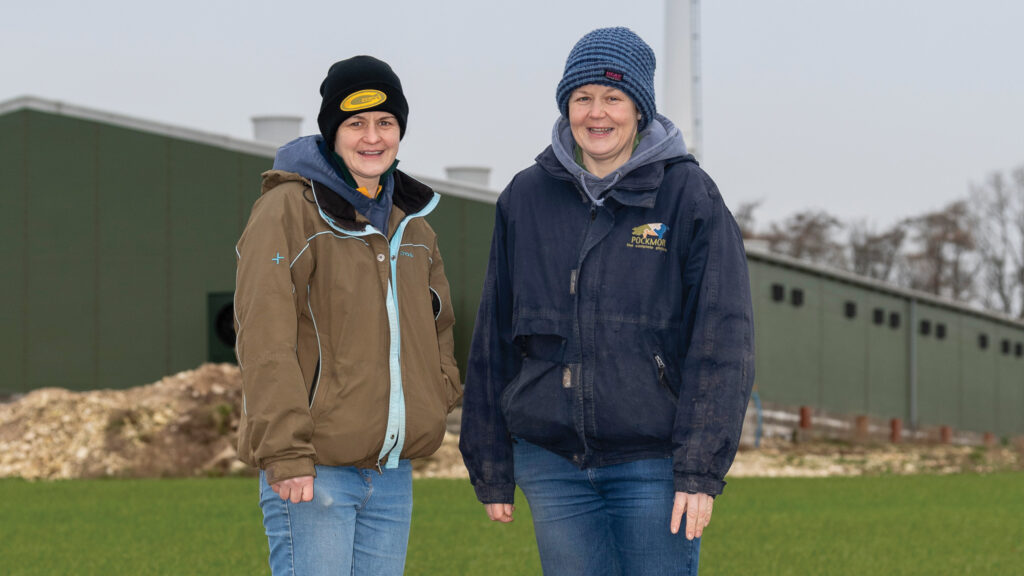Second farm investment helps Transition pig farmers meet goals
 Kate (left) and Vicky Morgan © Wayne Hutchinson
Kate (left) and Vicky Morgan © Wayne Hutchinson Investing in a second farm with buildings is helping pig farmers Vicky and Kate Morgan take back control.
The appeal of the former 30-acre pig breeding site was its farmyard and the potential to replace ageing infrastructure with modern sheds and straw yards for 4,000 weaners.
One of the reasons for buying the farm, which is about 15 miles from the home farm at Pockthorpe, was to reduce reliance on third-party bed-and-breakfast providers.
See more:
Vicky says availability of third party accommodation is increasingly limited.
“There is a lot of competition from big vertically integrated multiples adding to the pressure,” she says.
“Building our own will give us the opportunity to run it to our standards.”
The Morgans will still work with third-party farmers when the new infrastructure is up and running in September 2024.
“These farmers have been working with us for many years and are highly valued and appreciated. They do a great job,” says Vicky.
But reducing reliance on sites that charge prices which can be unjustifiable will help the sisters achieve a Transition goal – to establish more influence over their own destiny.
Transition goals
- Facilitate structural change in supply chain
- Establish more influence over their own destiny
- Diversify
Farm facts: DP Morgan, Pockthorpe, East Yorkshire
- 1,700 breeding sows
- Weaning 1,000 pigs a week – finished on-site and through B&B
- 140ha rented out
They have also made significant progress with one of their other goals: to diversify.
In April 2023 they welcomed the first visitors to their six holiday lodges, Kesters Country Lodges, and a few months later, a one-bedroom former pumphouse conversion opened at Pockthorpe.
Although the payback period on the conversion of the old building at Pockthorpe is likely to be 10 years, the project has served two purposes.
“We knew we needed to diversify to provide long-term financial stability and the pumphouse was a lovely old building that we needed to do something with,” Vicky explains.
Her sister, Rachel, is running the lodges with help from their mother, Sue.
But it is not easy balancing the diversification with farming full-time.
“It doesn’t seem fair that farmers have to do something else on top of working in a demanding full-time job, just to spread the risk,” says Vicky.
